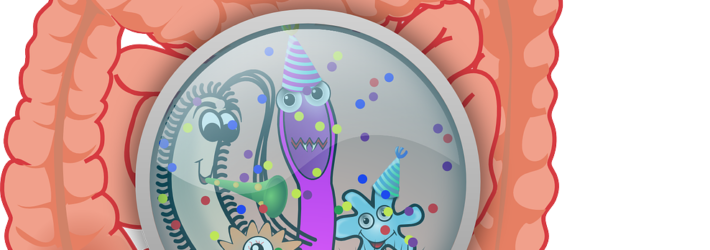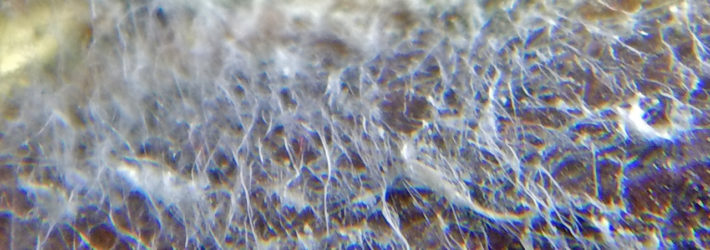Just like there are different types of IBS – IBS constipation, IBS diarrhea and IBS mixed, there are different types of SIBO. And the different types of SIBO can certainly relate to what type of IBS symptoms you may have.
This article will explain the 3 dominant types of SIBO, how they differ and the treatment options.
Is it SIBO or Not?
It was 2011 and there I was at my GI doctor’s office waiting to be tested for small intestinal bacterial overgrowth (SIBO). Previously, I had brought yet another research study to my primary care physician about SIBO and he finally referred me for testing. I had been reading about SIBO for a while and I fit the symptom profile exactly:
• Severe bloating-check
• Abdominal pain-check
• Constipation-check
• Fatigue-check
This was it, I had finally figured out what was wrong with me. I was excited!
The day before the test, I had followed the special diet exactly as outlined and without any cheats.
The next day, I was in the GI doctor’s waiting room, blowing into a device that captured my breath. After my first baseline breath, I drank a sweetened drink with lactulose (an indigestible sugar) and waited 20 min, then blew into the device again.
The test was scheduled for 3 hours. Interestingly, this particular test was able to analyze the hydrogen as I blew into the device right then (it didn’t have to be sent off to the lab like most test kits in use now), so the nurse knew the results right after I would blow.
After the second hour, the nurse told me that my results were completely negative and I might as well end the test.
“Surely that can’t be true,” I told the nurse. “Just look at my stomach!” Thirty minutes after drinking the lactulose, it had blown up like a balloon-round and hard. With a shrug of her shoulders, she didn’t have an answer and just walked away.
I finished the test anyways, just because.
But I could feel my mood deflating as my stomach continued to inflate.
I left the office dejected and without a diagnosis. Back to the drawing board.
What was going on? Why was the test negative?
It would take me another year of researching and reading articles to figure out that the test the doctor was using only measured hydrogen levels (I know this because I looked up the company that manufactured the device). The SIBO that I had was strictly methane dominant. Methane consumes hydrogen, so there was no hydrogen left in my intestines to measure.
Ah, if only I had known all of that then, I could have been much closer to resolving this.
The Three Types of SIBO
SIBO isn’t caused by just one bacterial species but multiple species. In fact, one study found 15 different species of bacteria overgrowing in the small intestine.1 These bacteria produce hydrogen and other gases as byproducts of carbohydrate fermentation. Besides bacteria, there are other types of microorganism that can overgrow in the small intestine, such as archea species that produce methane gas and fungi (which can cause small intestinal fungal overgrowth-this is a topic for another article).
There are currently three gases produced by bacteria and archaea that are characteristic of SIBO, these include:
• Hydrogen
• Methane
• Sulfide
If you have higher amounts of hydrogen, you are said to be hydrogen dominant. More methane- methane dominant. Certain bacteria produce hydrogen when they consume carbohydrate sources, while other microorganisms actually consume the hydrogen itself. In turn, they produce methane, acetate and hydrogen sulfide.2
The majority of this gas is expelled via flatulence, or in laymen’s terms, farting. The rest of the gas is expelled through the lungs.
If you have read anything about SIBO, you may already know that the breath test is the most practical way to test for it. It indirectly quantifies SIBO by measuring the amount of hydrogen and methane expelled through the lungs. To read more about the breath test, see my article “What Your Doctor Doesn’t Know About SIBO Breath Test.
Which type of SIBO is the most common? In my experience, I see more hydrogen dominant than methane dominant. One study tested about 200 people who had IBS with the glucose breath test. Almost half of them were positive for SIBO. Here is the breakdown for those who were positive:3
• 66% had hydrogen dominant SIBO
• 29% were methane dominant
What about sulfide, the third gas mentioned above? The technology to measure sulfide is actively being researched, but at this time isn’t currently available for consumer use.4
Update: Since the guidelines were published, a newer test was developed by Dr. Pimental and group that also measures hydrogen sulfide, along with hydrogen and methane. This test is called the Trio-smart breath test.
How Do Each of These Types of SIBO Differ?
The main difference between the three types of SIBO are the gases that are produced by the microorganisms living in the small bowel. The three types of SIBO that are currently being recognized are hydrogen, methane and sulfide dominant.
Hydrogen Dominant
Approximately 90-98% of people produce hydrogen gas while 30-50% of people produce methane gas.2 Remember, we all produce gas from our microorganisms that live in the colon. The problem arises when we have too many microorganisms producing too much gas in the small intestine.
Most of my clients have hydrogen dominant SIBO and research indicates that it is the most prevalent.3 Increased hydrogen production is often associated with loose stools or diarrhea, although this isn’t always the case. I have had patients troubled with diarrhea for years who finally have relief when their SIBO is treated.
In my experience, it is the easier of the three types of SIBO to treat. This may because the predominant bacteria are more sensitive to antibiotics.
Methane Dominant
While multiple species of bacteria produce hydrogen, in humans, Methanobrevibacter smithii (M.smithii) accounts for 94% of the species that produce methane. These species are called archea, because they really aren’t bacteria, but single celled organisms without a nucleus. They are otherwise known as methanogens. About 15% of the population have a predominance of methanogens in their intestinal tracts.5 It is not whether you have methanogens, or in particular, M.smithii, it is how much do you have. The higher the amounts, the higher the chance you will have methane detected by the breath test.
Studies show that methane production is associated with constipation.6,7,8
My experience definitely finds this to be true. I had high amounts of M.smithii in the stool and my lactulose breath test showed severely high levels of methane gas, with very little hydrogen. My main symptom was severe constipation, which resolved when I treated my SIBO and came back when my SIBO came back.
I have had clients in similar situations. They have high methane levels on the breath test with high levels of M.smithii in the stool who have struggled with severe constipation for many years.
Reducing the methane gas gets things moving in the right direction again.
An important concept to note, not all people with IBS constipation have methane. I have seen this multiple times with my clients. One client had severe constipation and I was sure that she had methane dominant SIBO; however, her breath test did not meet the criteria for methane. Therefore, we had to keep searching for her underyling cause for her chronic constipation.
Sulfide Dominant
Hydrogen Sulfide (H2S) gas is produced by sulfate-reducing bacteria. These bacteria eat the hydrogen produced by other bacteria in the intestinal tract.4 You will need to get the Trio-smart breath test to measure all three gases.
If you don’t have the Trio-smart breath test, there is an indirect way to determine sulfide dominant SIBO from looking at breath test results. According to Lisa Shaver, ND, the breath test will have a flat line during the entire 3 hour lactulose test, meaning there is very little hydrogen and/or methane gas in the intestinal tract.9 The test will appear negative, but if you have sulfate-reducing bacteria, they will have consumed all of the hydrogen. If there is no hydrogen, then there is no food for the methanogen bacteria either. People who don’t have SIBO still have some hydrogen production going on their small intestine, so a test that is near zero levels is not normal either.
What this means is just because your breath test looks negative, doesn’t necessarily mean it is.
If you have SIBO type symptoms-bloating, abdominal pain, and diarrhea, but your breath test is negative, or flat lined, then ask your practitioner to still consider sulfide SIBO.
In my experience working with clients, the most tell tale sign that distinguishes this type of SIBO from the others is the odor of the expelled gas. Sulfide gas smells like rotten eggs. My clients that have had this type of SIBO report smelly farts-the type that will clear the room faster than a fire alarm. Also, the client’s family and friends may report that they have bad breath. If a person doesn’t have this clinical presentation, that doesn’t rule out sulfide SIBO, but it sure is a great clue.
This type of SIBO is more associated with diarrhea rather than constipation. Treating it can really make a difference in their symptoms, not to mention their social life!
Treatments Differ Based on SIBO Types
If you have been struggling from SIBO type symptoms for a while and haven’t had a breath test, it would be revealing to go ahead and conduct a test for two reasons. Number 1, it is helpful to know if it is SIBO that is causing the symptoms to begin with (instead of fungal overgrowth, other GI infections, food sensitivities, nutrient deficiencies, and many other causes besides SIBO). Number 2, If you do have SIBO, then what type do you have?
Knowing what type of SIBO you have will help determine the treatment, because they differ. For example, hydrogen dominant SIBO is treated with one antibiotic, such as rifaximin (Xifaxan) and/or a combination of herbs such as berberine, oregano, neem, cinnamon, etc.
If you are using antibiotics, then methane dominant SIBO needs both rifaximin and neomycin (or another antibiotic) coupled together for best results.10 With herbs, high dose allicin (an extract of garlic) coupled with the above herbs is usually recommended to increase efficacy.
The treatment for hydrogen sulfide dominant SIBO is similar to methane dominant SIBO in terms of antibiotics. However, the diet may differ. According to Dr. Greg Nigh, ND, a temporary sulfur elimination diet will need to be employed as well as targeted supplementation to assist with underlying issues related to sulfate production.
My “Blind” Treatment Experience
After my breath test was negative, I returned to my primary care physician. I told him I have SIBO, I just know it. Even though the test at the GI doc was negative (because the test only measured hydrogen), I would still like to try some Xifaxan. I had a really great doctor who was willing to learn with me on this “new” condition. But I was going into treatment “blind” to the type of SIBO that I had.
So he prescribed it. I went home with such high hopes.
Did it meet my expectations?
No, not much happened to tell you the truth.
So what did I do? I got more! Again, not much happened. It didn’t work well because I didn’t know at the time that I had methane dominant SIBO and needed another antibiotic coupled with Xifaxan. Again, if only I knew then what I know now……
What is Your SIBO Type?
I really wanted to know if I had SIBO and what type it was. I am very happy that I did a hydrogen/methane breath test. Having the results after years of struggling with constipation was extremely revealing and satisfying to me. Finally, I had an answer as to why I was suffering so much.
Given the fact that hydrogen dominant SIBO is usually accompanied by diarrhea, methane usually results in constipation and sulfide dominant can result in malodorous gas, an educated guess could be made as to what type you have. But like I mentioned above, you may have these symptoms and not have SIBO at all, but something else.
I encourage my clients to get tested, just so they know what they are dealing with and can target treatment to their specific type. I have a more thorough discussion on SIBO breath tests in the post “What Your Doctor Doesn’t Know About SIBO Breath Testing.”
If you want to get tested, then ask your practitioner to test you or click here for a free 30 minute SIBO troubleshooting consultation. We can get you tested so that you can find out what type of gas you have and work together with your healthcare team to develop a treatment program that is individual to you!
References
1. Bouhnik Y, Ph D, Alain S, et al. Bacterial populations contaminating the upper gut in patients with small intestinal bacterial overgrowth syndrome. 1999;94(5):2–6.
2. Bures J, Cyrany J, Kohoutova D, et al. Small intestinal bacterial overgrowth syndrome. World J. Gastroenterol. 2010;16(24):2978–2990.
3. Majewski M, McCallum RW. Results of small intestinal bacterial overgrowth testing in irritable bowel syndrome patients: clinical profiles and effects of antibiotic trial. Adv. Med. Sci. 2007;52:139–42. Available at: http://www.ncbi.nlm.nih.gov/pubmed/18217406.
4. Banik GD, De A, Som S, et al. Hydrogen sulphide in exhaled breath: A potential biomarker for small intestinal bacterial overgrowth in IBS. J. Breath Res. 2016;10(2).
5. Ojetti V, Bruno G, Paolucci V, et al. The prevalence of small intestinal bacterial overgrowth and methane production in patients with myelomeningocele and constipation. Spinal Cord. 2014;52(1):61–64.
6. Pimentel M, Chang C, Chua KS, et al. Antibiotic treatment of constipation-predominant irritable bowel syndrome. Dig. Dis. Sci. 2014;59(6):1278–1285.
7. Pimentel M, Gunsalus RP, Rao SS, Zhang H. Methanogens in Human Health and Disease. Am. J. Gastroenterol. Suppl. 2012;1(1):28–33. Available at: http://www.nature.com/doifinder/10.1038/ajgsup.2012.6.
8. Pimentel M, Lin HC, Enayati P, et al. Methane, a gas produced by enteric bacteria, slows intestinal transit and augments small intestinal contractile activity. Am. J. Physiol. Liver Physiol. 2006;290(6):G1089–G1095. Available at: http://www.ncbi.nlm.nih.gov/pubmed/16293652 [Accessed June 27, 2018].
9. Shaver Li. National College of Natural Medicine SIBO Symposium. In: Top 10 Highlights from 2014 & 2015 SIBO Symposiums. Portland; 2016.
10. Low K, Hwang L, Hua J, et al. A Combination of rifaximin and neomycin is most effective in treating irritable bowel syndrome patients with methane on lactulose breath test. J. Clin. Gastroenterol. 2009;44(8):1. Available at: http://www.ncbi.nlm.nih.gov/pubmed/19996983 [Accessed April 25, 2017].



